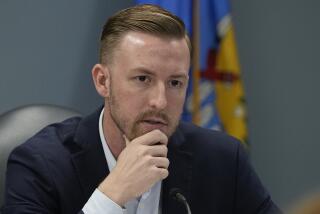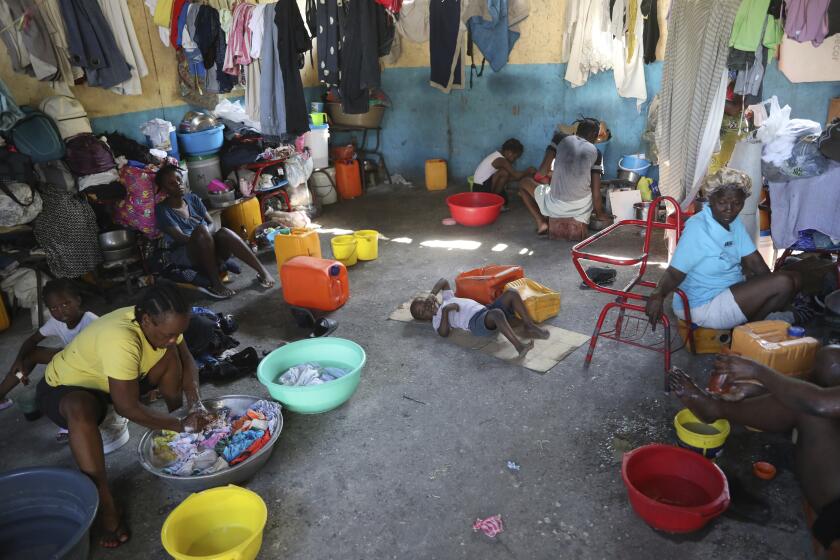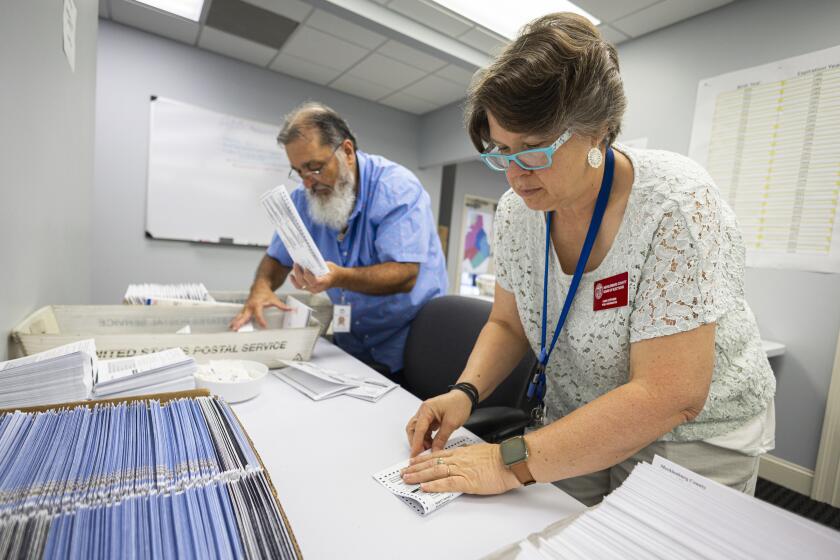Judge Holds Closed Meeting in U.S. Suit Against Casinos
Attorneys for the federal government suing to shut down thousands of slot machines and blackjack tables at nine Indian casinos met behind closed doors Monday with lawyers for tribal leaders, after a federal judge refused to hold an open hearing on the lawsuit.
U.S. District Judge J. Spencer Letts rejected a request by news organizations that he consider in open court the U.S. attorneys’ demand that the casinos close down their most lucrative gaming machines.
Instead, the judge said he would hold a private meeting with both sides in his chambers.
“I don’t think [the 1st Amendment right] applies to civil proceedings,” Letts said, arguing that the public has an unquestioned right to follow criminal trials but does not always have a compelling need to track civil cases.
“I don’t know that I think it’s very desirable to have findings of fact in the sunshine [of open court],” Letts added.
Karen Frederiksen, the attorney representing several media organizations, including the Los Angeles Times, contended that the hearing should be held in open court because it involves issues of compelling public interest, including gambling and Native American rights.
Frederiksen said she was considering an appeal.
After rejecting the media requests, Letts asked the attorneys for both sides to follow him into chambers, where they spent two hours discussing the dispute. When they emerged, lawyers for the tribes said they expected their casinos to continue operating slot machines and blackjack tables.
“There was not any decision that would mandate any change in operations,” said Gene Gambali, a tribal attorney.
The federal government has declared slot machines and blackjack illegal in California because state law does not permit players to bet against the house. California law allows gambling only when players vie against one another for money they have all contributed to a central pool, as in poker or bingo.
The tribes, however, contend that the federal government does not have the authority to shut down the casinos--by and large their biggest source of income--because they are sovereign nations. Letts asked both sides to write further briefs on the issue of whether he should have jurisdiction over the casinos named in the lawsuits, which are on Indian reservations in Santa Barbara, Riverside and San Bernardino counties.
More to Read
Sign up for Essential California
The most important California stories and recommendations in your inbox every morning.
You may occasionally receive promotional content from the Los Angeles Times.










